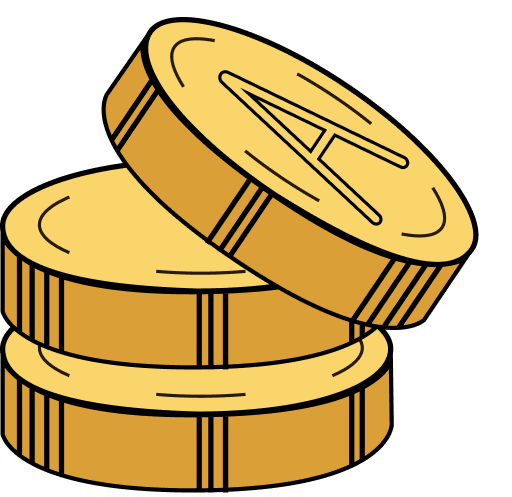Augur (software)
Augur is an , decentralized platform built on Ethereum. The Augur protocol is a set of smart contracts that exist on the Ethereum blockchain.
Augur was founded in 2014 by Jack Peterson and Joey Krug. The first working version of Augurs alpha release was published to the Ethereum test network in June 2015. Development was funded via an online crowdsale during August and October 2015. Four months later in March 2016, Augurs beta release was deployed to the Ethereum test network. The project has gone through a few iterations since then, and are in the final stages of preparing for a main network launch.
Contents
Purpose and background
The Augur project seeks to leverage the open, global, peer-to-peer ledger functionality that blockchain technology provides, as well as and financial incentives, to better explore the concept of the (also known as ) and try to get more accurate predictions about future events. The specific technologies used would theoretically allow for more participation and volume compared to traditional betting platforms, therefore augmenting the quantity of markets available and their accuracy.
Operation
The underlying network unit utilized by Augur is known as reputation (or REP), which will be used by the platform’s referees to report event outcomes (whether predictions were successful or not), while Bitcoin and Ether (Ethereum‘s internal currency) will be used for speculating on markets. Almost all of the reputation units were distributed during the crowdsale to approximately 4,800 participants, but they are set to be continually redistributed from holders who vote against the consensus to holders that vote with the consensus.
Augur can be used as a distributed oracle system, allowing other to propose questions to it and discover information about the real world without having to trust a single person, AI or organization.
Use of Ethereum
After an initial desire to build the on the Bitcoin blockchain, the Augur team settled on Ethereum, explaining that it currently offers a better development platform for rapid deployment, that making use of Bitcoin as the foundation would not have offered clear security benefits, and that it intends to integrate into the Bitcoin network through sidechains as soon as that technology becomes available.
One critic has expressed the opinion that the Ethereum platform is impractical for use in the calculation of outcomes because it allows for “parasite contracts” which steal the work done by contributors without compensating them properly. The Augur team pointed out that this vulnerability is not unique to Ethereum: any blockchain-based system can execute such a “parasite” attack on another blockchain simply by incorporating Merkle proofs of the host blockchain into its own chain. Ethereum-based oracles are expected to be resilient to parasite attacks, as they cannot be attacked by Ethereum-based parasite contracts; Ethereum contracts do not have access to raw blockchain data.
History
The development of Augur began in October 2014, with an alpha prototype being released shortly after. In April 2015, Augur’s first contract was uploaded to the Ethereum network.In June 2015, an alpha version was released to the general public for testing.
Shortly afterwards, Augur announced that 8.8 million reputation tokens would be distributed via a 45-day crowdsale beginning on August 17, 2015. It was deemed necessary to support future development and distribute voting power for event outcomes. Augur raised over $5.2 million before the crowdsale concluded on October 1, 2015, making it one of the top 25 highest funded crowdfunding projects of all time.
Coinbase selected Augur as one of its five most exciting Bitcoin projects in their “Bitcoin Trends In The First Half Of 2015” report.
Augur was the only blockchain technology that made it to the finals in the and ‘s Exponential Finance XCS Challenge.
Augur has amassed growing media attention. Maxim Lott from notes that “Augur aims to prevent [the shutdown of ] from happening again by being a prediction market that operates as a self-sustaining computer program which would not need a corporation to operate it.” Jim Epstein from magazine writes that Augur “could do to the neighborhood bookie what electric refrigerators did to the ice delivery man”. Tom Kerr from the warns about a “technological innovation that could disrupt bookmakers, undermine racing’s funding mechanism and make preventing corruption almost impossible”, while also admitting “[it] is now out there and it will not go away”.
The platform has also been mentioned on , , the , the , and CoinDesk.
In March 2016, Augur released a beta version.
In October 2016, all the reputation tokens that were for sale during the 2015 crowdfunding campaign were distributed to their owners on the live Ethereum network. The two largest cryptocurrency exchanges, Poloniex and , added support for these tokens on their trading platforms. This was followed by integration in MyEtherWallet and the Jaxx multiplatform cryptocurrency wallet, including iOS after Apple approved the use of Augur REP in the App Store. The Augur platform itself has not launched yet however.
In July 2017, the Serpent compiler (a Python-based language for smart contracts) was publicly audited by Zeppelin Solutions, and a ” vulnerability” was found. This resulted in a critical security bug, one that does not allow for the theft of funds. Presumably, an adversary can halt the transfer of tokens (REP). Augur and Zepplin began to migrate the funds from the previous Serpent based contract to a more secure Solidity based contract.
Academic and business affiliations
The project includes founder Ron Bernstein and economics professor (author of OvercomingBias.com) among its advisers.
Coinbase CEO Brian Armstrong said Augur “could produce some incredibly useful data” and that it was “super exciting. We talk about it a lot internally.” Ethereum founder Vitalik Buterin as well as Bitcoin entrepreneurs Erik Voorhees and Bo Shen have also expressed support for the platform.
In March 2015, Microsoft announced both a partnership with Augur and the Augur Beta in a firehose blog post. Augur will be offered in Microsoft Azure‘s “Blockchain as a service” offering to enterprise users.














 Twitter
Twitter
 Telegram
Telegram
